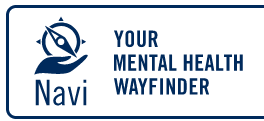Overview: Economics in the Rotman Commerce Programs
Commerce Programs are jointly offered by the Rotman School of Management and the Faculty of Arts and Science, and partners the Rotman School with Canada's top Economics Department.Whichever Commerce Specialist program you are taking (Accounting (either stream), Management, or Finance and Economics), Economics courses are offered to enhance students' analytic and quantitative skills. These directly reinforce business-oriented courses, but also independently help students better understand the economy and world around them, whether at a global, national, or even individual level. Elective courses are offered in a variety of areas: Industrial Organization, International Economics, Game Theory, Labour, Money and Banking, Behavioural Economics, and Development, to name a few.
Students who complete the Finance and Economics program, or add an Economics Major to an Accounting or Management Specialist Program, have a solid "honours-level" undergraduate training in Economics that is excellent preparation for graduate studies at the MA, MFE, or PhD level, as well as Law School. Students contemplating graduate studies in Economics, even if their interest is late-blooming, should also consider bolstering their math beyond the MAT133Y level.
A few notes on courses of special interest to Rotman Commerce students
Intermediate Microeconomics
The analytic core of economics courses in all Rotman programs is provided by a full-year course in intermediate microeconomics: A rigorous study of consumer and producer behaviour, as well the analysis of markets and the price mechanism. Whichever Rotman Commerce program you are taking, you can choose between two different courses: ECO204Y1 or ECO206Y1. The courses are very similar in style: Calculus-based microeconomic theory, combined with writing-based analysis of "real world" issues. The primary difference between the courses is that ECO204Y1 is specifically tailored for Commerce, and has more business-oriented examples and applications. ECO206Y1 is similar in coverage, with examples drawn more broadly, including more emphasis on public policy.Students interested in a more detailed comparison can view representative syllabii from recent years.
Note: The ECO204Y1/ECO206Y1 program requirement must be fulfilled at the University of Toronto (St. George), and cannot be met by transfer credit.
Intermediate Macroeconomics
Students in the Finance and Economics Specialist Program are also required to take a course in intermediate macroeconomics. The focus of this course is "Money" and the aggregate economy more generally: GDP, interest rates, economic growth, business cycles, monetary policy, and exchange rates are core topics. These topics, and the associated tools for analyzing the macroeconomy, are of vital importance to students with interests in finance and business. Rotman students can choose between two courses: ECO208Y1 and ECO209Y1. These courses differ more than the intermediate micro courses, with ECO209Y1 more focused on topics of interest to business students, while ECO208Y1 emphasizes topics like long-run economic growth.Students interested in a more detailed comparison can view representative syllabii from recent years.
Note 1: The ECO208Y1/ECO209Y1 program requirement must be fulfilled at the University of Toronto (St. George), and cannot be met by transfer credit.
Note 2: Students in the Accounting or Management Programs do not need to take ECO209Y1 (or ECO208Y1). However, many students elect to do so because it is a prerequisite for upper-year courses in Economics that may interest them, especially ECO349H1 (Money, Banking, and Finance), ECO362H1 (Economic Growth), and ECO365H1 (International Monetary Economics), to name a few. Given that pre-requisites are absolutely required, students should consider taking ECO208Y or ECO209Y early in their programs.
Econometrics
A deep understanding of economics and business issues increasing requires the ability to critically assess empirical evidence, and statistics more generally. A solid foundation is provided by ECO220Y1, but many Rotman Commerce students would like to enhance their "quant" skills. There are two Econometrics courses that Rotman students may consider:ECO375H1, Applied Econometrics I is the primary offering in Econometrics, and is useful for all students in Commerce, especially those interested in marketing or empirical microeconomics. This is also an excellent course for those students interested in current economic research, or those considering MA degrees in Economics or related disciplines.
ECO374H1, Forecasting and Time Series Econometrics focuses on time-series analysis and forecasting. It is more applied than ECO375H1 and useful for those with an interest in the empirical study of financial markets.
Students interested in a more detailed comparison can view representative syllabii from recent years.
Public Economics
ECO337H1, Public Economics (for Commerce) should be of particular interest to students in the Finance&Economics and Public Accounting streams.The course will be taught by Professor Michael Smart, one of Canada's leading experts on theories of taxation, especially as they relate to business and finance. Professor Smart is also a Resident Fellow at the CD Howe Institute.
As a brief description, ECO337H provides an introduction to the economics of government similar to ECO336H1, but with greater focus on issues in business and financial economics. Additional topics include business tax planning and corporate financial policy; taxation of saving and risk-taking; and government business enterprises.
